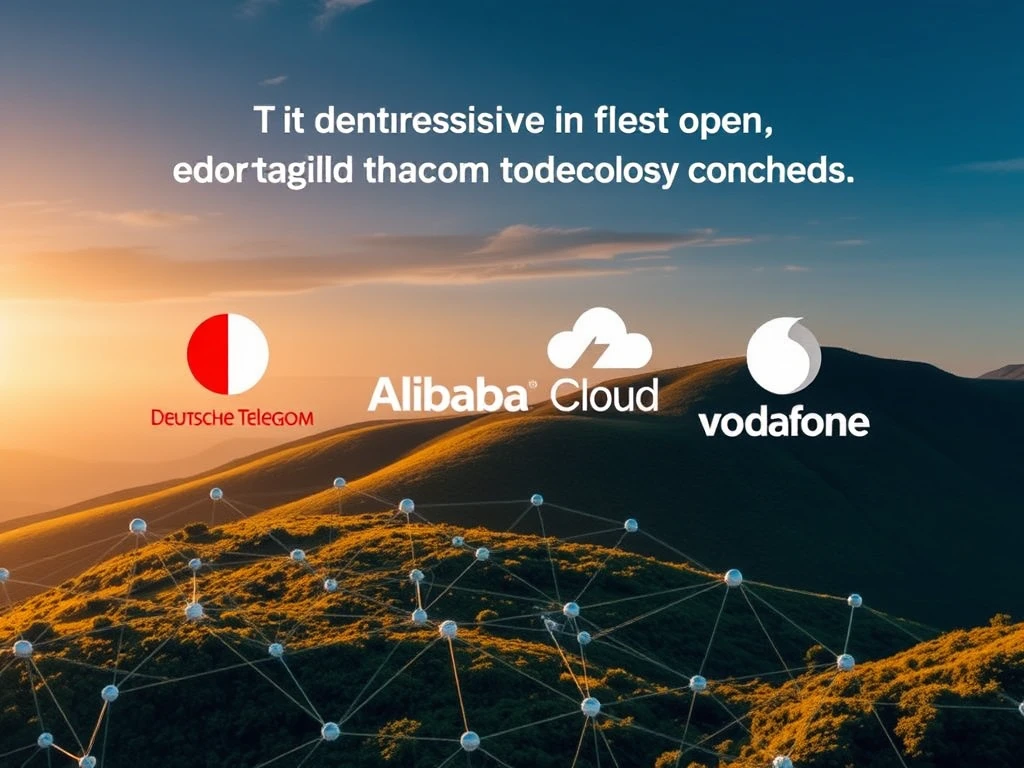Nillion’s Enterprise Blockchain Initiative Attracts Tech Giants

The world of decentralized technology is seeing significant traction beyond just cryptocurrencies. A major development involves key players from the traditional tech and telecom sectors engaging directly with innovative decentralized platforms. This is precisely what’s happening with Nillion, a network focused on secure data computation.
What is Nillion’s Enterprise Blockchain Initiative?
Nillion recently launched its Enterprise Cluster, an initiative designed to push decentralized applications into areas requiring high levels of data privacy. This goes beyond typical crypto use cases, targeting sectors like healthcare, finance, and enterprise data sharing. The core idea is to allow organizations to use decentralized infrastructure for privacy-sensitive tasks without the risks associated with centralized systems or the privacy limits of standard blockchains.
As part of this initiative, several prominent companies are now operating infrastructure nodes on Nillion’s platform:
- Deutsche Telekom
- Alibaba Cloud
- STC Bahrain
- Pairpoint by Vodafone
This participation signals growing confidence from large enterprises in the potential of decentralized networks for critical operations.
Securing Data Privacy with Nillion
Nillion addresses a key challenge in decentralized systems: how to process data while keeping it private. Its core technology, called Nil Message Compute, allows computation directly on encrypted data. This means sensitive information doesn’t need to be decrypted to be processed, maintaining privacy throughout the operation.
According to Miguel de Vega, Nillion’s co-founder and chief scientist, this capability makes privacy-first computation ready for enterprise use. The technology aims to solve a long-standing issue where organizations had to choose between the privacy risks of centralizing data and the limitations of processing encrypted data on traditional blockchains. Nillion’s approach offers a new path.
The platform has also seen significant investment, raising $25 million recently, bringing its total funding to $50 million. Its technology was previously integrated with the Aptos network to support privacy applications.
Enterprise Adoption and Decentralized Computing
The involvement of companies like Deutsche Telekom, Alibaba Cloud, and Vodafone’s Pairpoint is a strong indicator of increasing enterprise blockchain adoption. These companies are not just exploring but actively participating by running nodes, which is fundamental to the network’s operation and decentralization.
This move suggests that large organizations are looking for decentralized solutions that offer tangible benefits, particularly in managing sensitive data and ensuring compliance. The Enterprise Cluster provides a framework for these companies to leverage decentralized computing power for specific business needs, moving beyond theoretical discussions to practical implementation.
The Ongoing Debate Around Data Privacy
The importance of data privacy in the digital age, and specifically within decentralized systems, remains a critical topic. While blockchain offers transparency, achieving robust privacy without compromising security or decentralization is complex. Nillion’s technology enters this landscape at a time when regulatory scrutiny on privacy tools in the crypto space is high.
Despite the challenges and debates surrounding privacy technologies like mixers or zero-knowledge proofs, development continues. Projects like Nillion demonstrate that innovation is focused on creating solutions that can meet enterprise requirements for privacy and security, potentially paving the way for broader adoption of decentralized technologies in sensitive applications.
Conclusion
The participation of major tech and telecom companies in Nillion’s Enterprise Cluster marks a significant step for decentralized computing and data privacy. By enabling computation on encrypted data, Nillion offers a solution that addresses key enterprise concerns. This initiative highlights the potential for decentralized networks to power real-world applications in critical sectors, moving beyond purely speculative uses and demonstrating tangible value for businesses worldwide.









